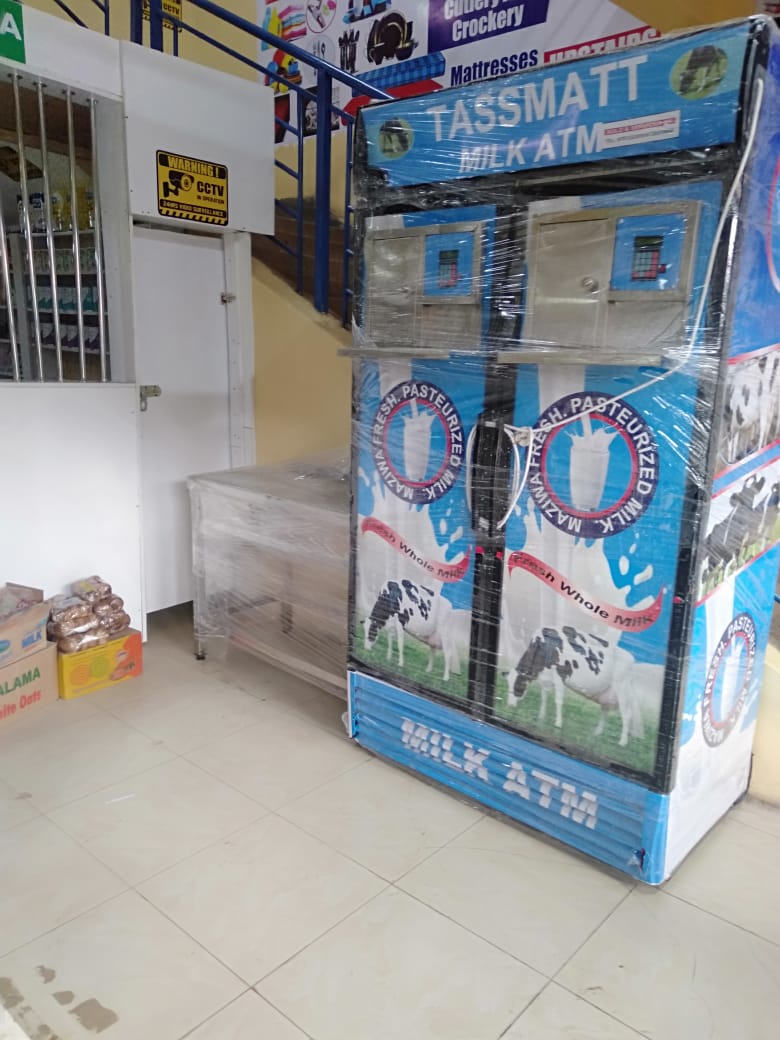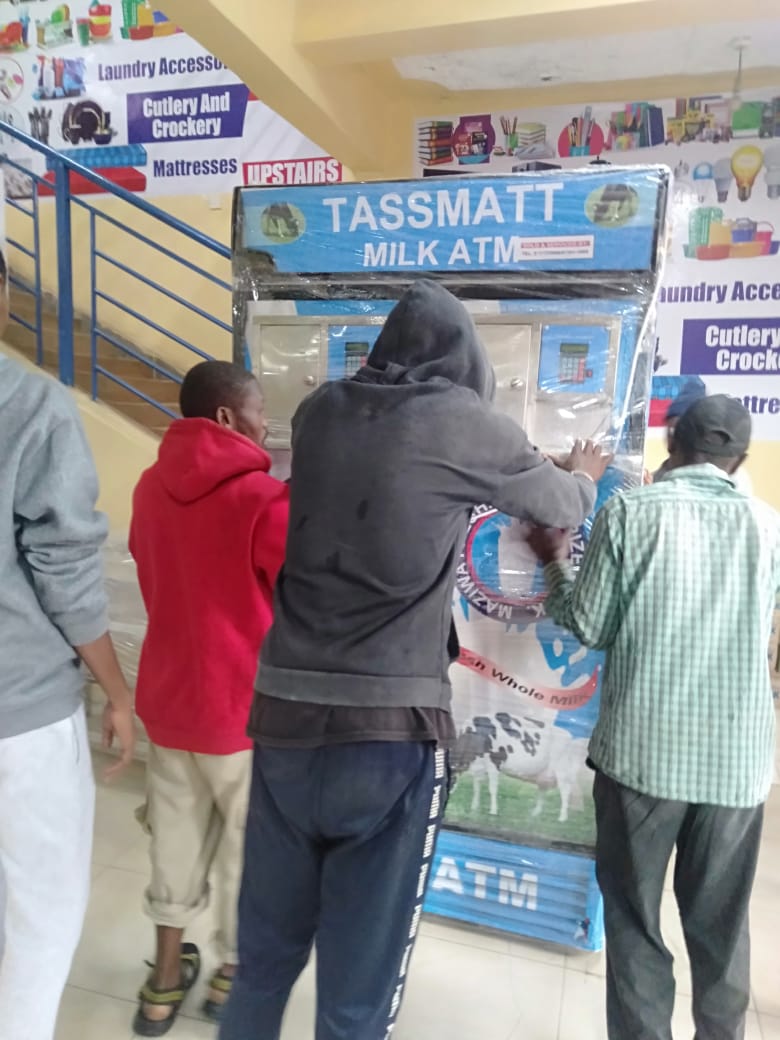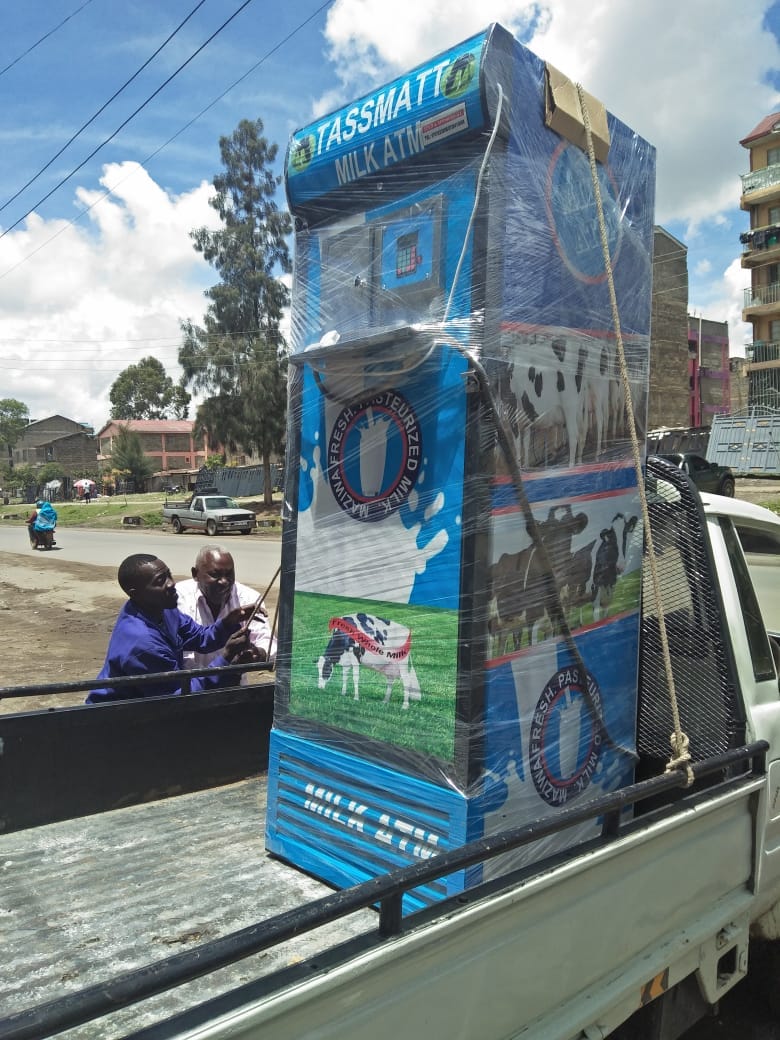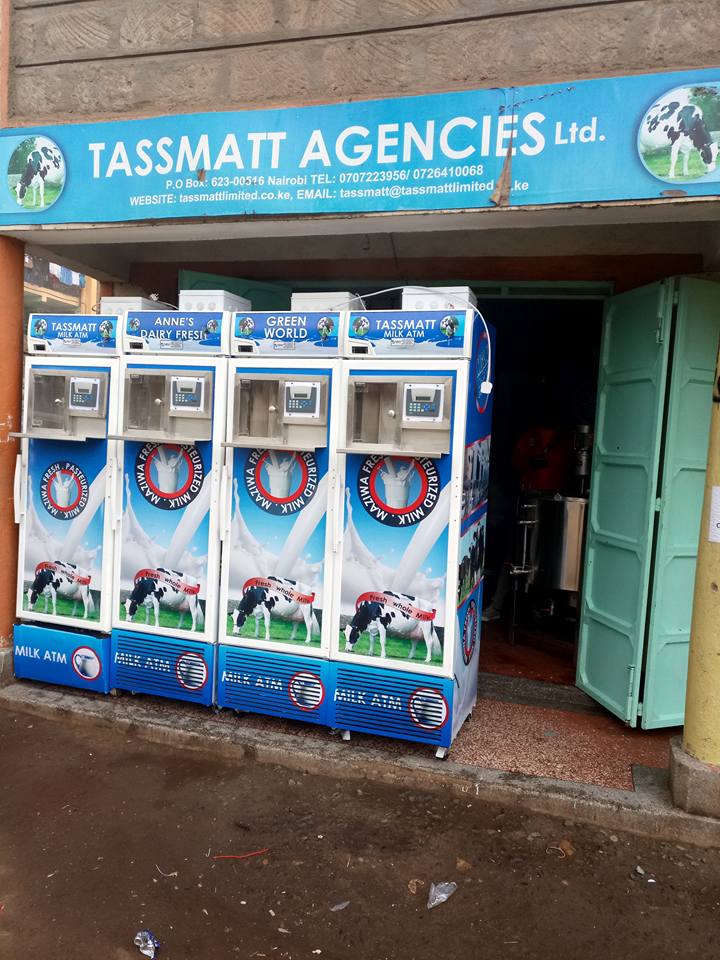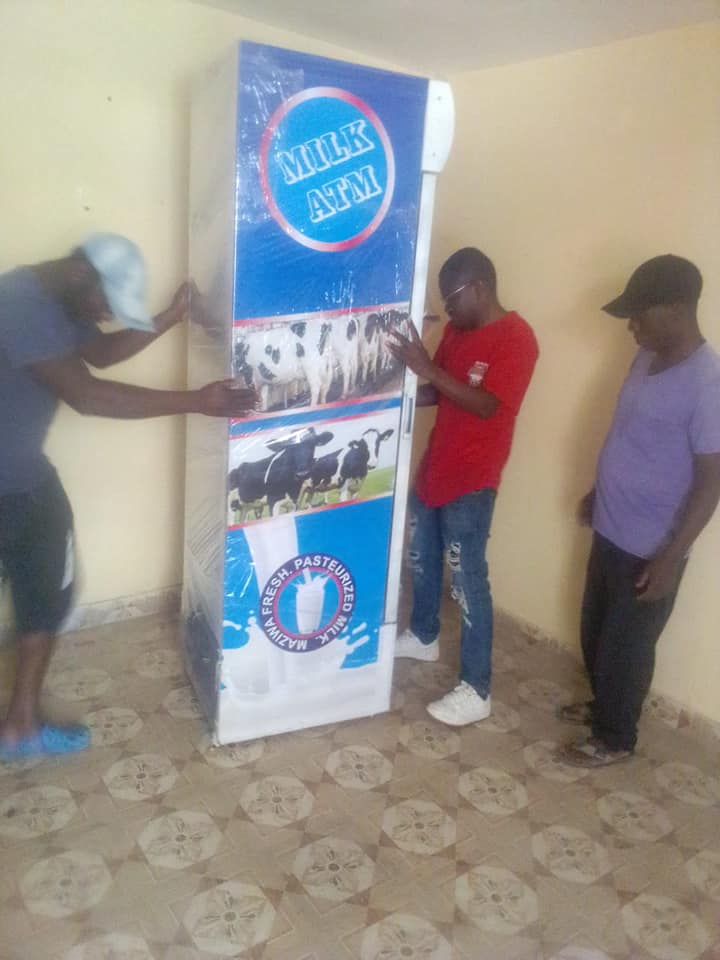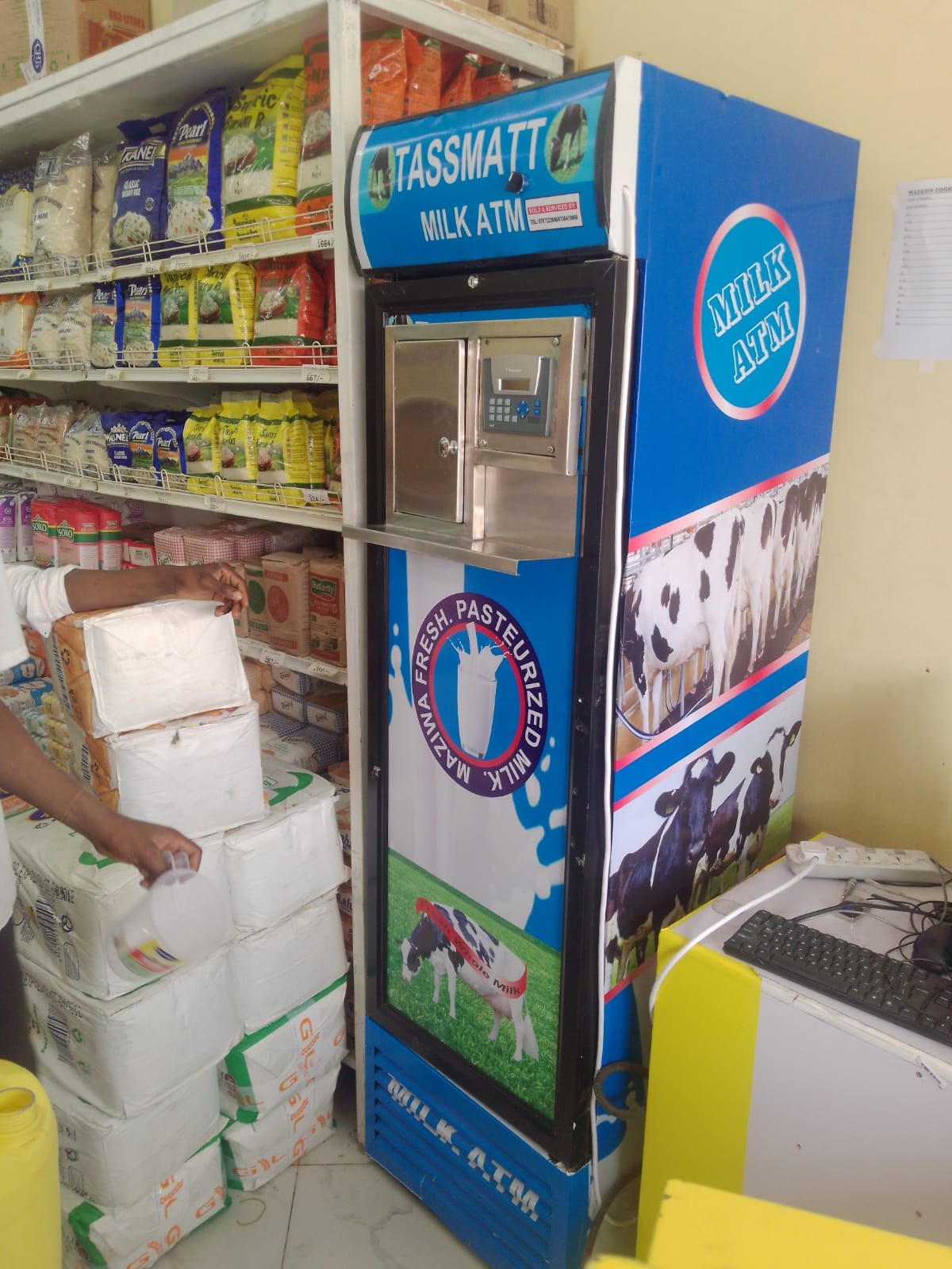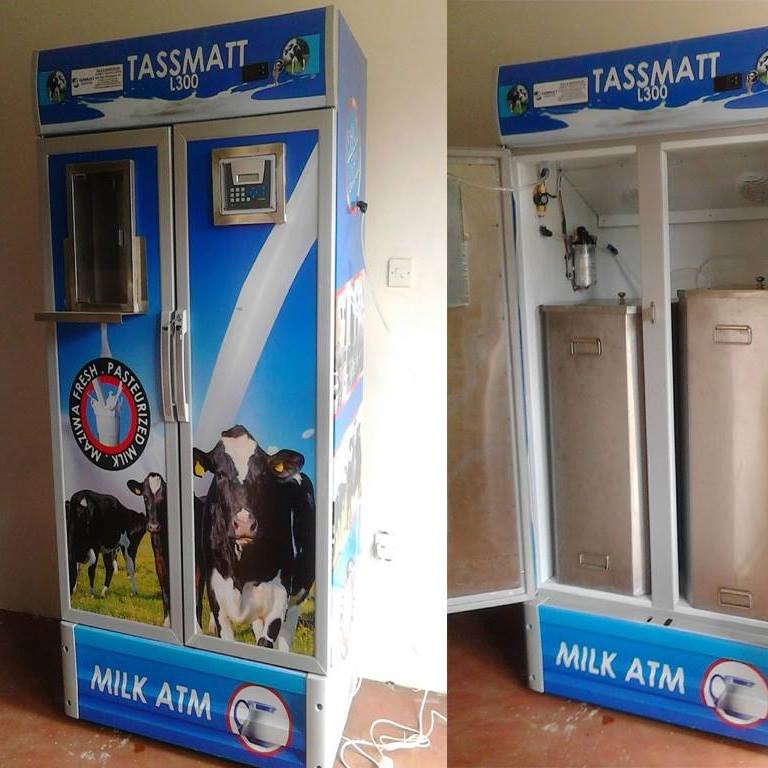In recent years, Kenya has witnessed a significant transformation in the way milk is distributed and sold. One innovative solution that has gained immense popularity is the Milk ATM vending machine. These state-of-the-art machines offer a convenient and hygienic method of purchasing fresh milk directly from the source. In this article, we explore the concept of Milk ATM vending machines, their benefits, and how Tassmatt Limited is leading the way as an accredited seller of these machines in Kenya.
What is a Milk ATM Vending Machine?
A Milk ATM vending machine is an automated self-service dispenser that allows consumers to purchase fresh milk in a hassle-free manner. Similar to an automated teller machine (ATM) for cash withdrawal, these machines provide a quick and efficient way to access milk. The concept has revolutionized the traditional milk distribution system, ensuring better quality control and convenience for both farmers and consumers.
Benefits of Milk ATM Vending Machines:
- Quality and Freshness: Milk from the vending machines is sourced directly from local dairy farmers, ensuring freshness and superior quality. Consumers can enjoy pure, unadulterated milk with confidence.
- Hygiene and Safety: Milk ATM vending machines are designed with strict hygiene standards in mind. The machines are made of food-grade materials, and the milk is stored in airtight, refrigerated containers to maintain its freshness and prevent contamination.
- Convenience and Accessibility: These machines are strategically placed in various locations, making it convenient for consumers to access fresh milk whenever they need it. Whether it’s a residential area, shopping center, or educational institution, Milk ATMs provide easy access to milk throughout the day.
- Cost-Effectiveness: Milk from vending machines is often priced competitively, offering consumers an affordable option for high-quality milk. Additionally, the machines allow consumers to purchase the desired quantity, reducing potential wastage.
Tassmatt Limited: Leading Accredited Sellers of Milk ATM Vending Machines
Tassmatt Limited is at the forefront of the Milk ATM revolution in Kenya. As an accredited seller, they offer high-quality, reliable, and technologically advanced Milk ATM vending machines. With their expertise and commitment to customer satisfaction, Tassmatt Limited has gained a reputation for providing top-notch machines that meet the needs of both dairy farmers and consumers.
Ordering a Milk ATM Vending Machine:
Whether you’re a dairy farmer looking to expand your business or a consumer seeking a reliable source of fresh milk, Milk ATM vending machines offer a revolutionary solution that combines convenience, hygiene, and quality. With Tassmatt Limited as your trusted partner, acquiring a Milk ATM vending machine in Kenya has never been easier.
Tassmatt Limited’s Commitment to Excellence:
Tassmatt Limited is dedicated to delivering excellence in every aspect of their service. Their team of experts understands the unique needs of the dairy industry and works closely with customers to ensure their specific requirements are met. By choosing Tassmatt Limited as your supplier, you can expect:
- High-Quality Machines: Tassmatt Limited sources and supplies Milk ATM vending machines that are manufactured to the highest standards. These machines are built to withstand the demands of daily use, ensuring durability and longevity.
- Comprehensive Support: Tassmatt Limited goes beyond simply selling machines. They provide comprehensive support throughout the entire process, from installation and training to ongoing maintenance and technical assistance. Their knowledgeable team is always available to address any concerns or inquiries that may arise.
- Customized Solutions: Tassmatt Limited recognizes that every dairy business is unique. They offer personalized solutions tailored to your specific needs, whether you’re a small-scale farmer or a large dairy operation. Their expertise allows them to recommend the most suitable machine capacity and configuration for your business requirements.
- Timely Delivery: Tassmatt Limited understands the importance of timely delivery. They strive to ensure that your Milk ATM vending machine is delivered promptly and efficiently, minimizing any potential downtime for your dairy business.
The Ordering Process:
Ordering a Milk ATM vending machine from Tassmatt Limited is a seamless process designed to make your experience as convenient as possible. Here’s a step-by-step guide:
- Visit the Website: Head to www.tassmatt.com, the official website of Tassmatt Limited, where you will find detailed information about their range of Milk ATM vending machines, including specifications, features, and pricing.
- Select Your Machine: Choose the machine that best suits your requirements. Consider factors such as capacity, display options, and additional features that may enhance the functionality of your Milk ATM.
- Place Your Order: Once you have made your selection, simply follow the instructions on the website to place your order securely. Alternatively, you can contact Tassmatt Limited directly via phone at +254 726410068
 to discuss your needs and initiate the ordering process.
to discuss your needs and initiate the ordering process.
- Installation and Training: Upon delivery, Tassmatt Limited will provide professional installation and conduct comprehensive training for you and your staff. This ensures that you are fully equipped to operate and maintain the Milk ATM vending machine effectively.
Embrace the Future of Milk Distribution:
Milk ATM vending machines are transforming the way dairy products are accessed and distributed in Kenya. By partnering with Tassmatt Limited, an accredited seller of these innovative machines, you can be confident in the quality, reliability, and support you will receive.
Unlock the potential of your dairy business and offer consumers a convenient and trustworthy way to access fresh milk. Visit www.tassmatt.com or call +254 726410068 today to order your Milk ATM vending machine from Tassmatt Limited and join the growing community of dairy entrepreneurs who are revolutionizing the milk industry in Kenya.
Common Frequently Asked Questions With Answers On Milk ATM Vending Machine In Kenya
1. What is a milk ATM vending machine?
A milk ATM vending machine is a machine that dispenses milk on demand. The machine is equipped with a refrigerated storage tank that holds fresh milk, and it dispenses milk through a nozzle after the customer inserts cash or uses an electronic payment system to purchase milk.
2. How much milk can a milk ATM vending machine hold?
The amount of milk a milk ATM vending machine can hold depends on the size and capacity of the machine. However, most milk ATM vending machines can hold from 100liters of milk and costs around 80,000Kshs according to Tassmatt Limited.
3. Can I operate a milk ATM vending machine in rural areas?
Yes, you can operate a milk ATM vending machine in rural areas, as it can increase access to affordable and safe milk in areas where access to fresh milk is limited.
4. How does a milk ATM vending machine work?
A milk ATM vending machine works by dispensing milk through a nozzle after the customer inserts cash or uses an electronic payment system to purchase milk. The machine is equipped with a scanner that reads the customer’s payment, and it then dispenses the amount of milk that the customer has purchased.
5. What are the benefits of using a milk ATM vending machine?
There are several benefits to using a milk ATM vending machine. These include:
- Convenience: Milk ATM vending machines are located in convenient locations, such as supermarkets, shopping malls, and petrol stations. This makes it easy for people to purchase milk on demand.
- Freshness: Milk ATM vending machines dispense fresh milk that has been pasteurized and homogenized. This ensures that the milk is safe to drink and that it has a long shelf life.
- Affordability: Milk ATM vending machines offer milk at competitive prices. This makes it a more affordable option for people who want to purchase fresh milk.
6. What are the drawbacks of using a milk ATM vending machine?
There are a few drawbacks to using a milk ATM vending machine. These include:
- Cost: The cost of purchasing a milk ATM vending machine can be high. However, the cost of operating the machine is relatively low, so the overall investment can be recouped over time.
- Maintenance: Milk ATM vending machines require regular maintenance to ensure that they are operating properly. This can be a time-consuming and costly process.
- Security: Milk ATM vending machines are a target for theft. This is because the machines contain large amounts of cash and milk.
7. What are the different types of milk ATM vending machines?
There are two main types of milk ATM vending machines:
- Single-serve machines: These machines dispense a single serving of milk at a time.
- Bulk machines: These machines dispense larger quantities of milk, such as 1-liter or 2-liter cartons.
8. What are the different payment methods that can be used to purchase milk from a milk ATM vending machine?
The most common payment methods that can be used to purchase milk from a milk ATM vending machine are cash, mpesa and credit cards.
9. What are the different milk brands that are available from milk ATM vending machines?
The milk brands that are available from milk ATM vending machines vary depending on the location of the machine. However, some of the most common brands include Brookside, KCC, and Diamond Fresh.
10. What are the different milk flavors that are available from milk ATM vending machines?
The milk flavors that are available from milk ATM vending machines vary depending on the location of the machine. However, some of the most common flavors include whole milk, skim milk, and chocolate milk.
11. What are the different milk sizes that are available from milk ATM vending machines?
The milk sizes that are available from milk ATM vending machines vary depending on the machine. However, some of the most common sizes can range from 100ml to as 40ltr
12. What are the different milk prices that are available from milk ATM vending machines?
The milk prices that are available from milk ATM vending machines vary depending on the brand, flavor, and size of the milk. However, some of the most common prices range from Ksh. 10 to Ksh. 550.
13. Where can I find milk ATM vending machines in Kenya?
Milk ATM vending machines can be found in various locations in Kenya, including supermarkets, shopping malls, and petrol stations. You can also find a list of milk ATM vending machines in Kenya on the websites of the milk companies that operate the machines like www.tassmatt.com
14. How do I know if a milk ATM vending machine is safe?
There are a few things you can look for to ensure that a milk ATM vending machine is safe. These include:
- The machine should be clean and well-maintained.
- The milk should be stored in a refrigerated environment.
- The machine should have a tamper-evident seal on the milk container.
15. What should I do if I find a milk ATM vending machine that is not safe?
If you find a milk ATM vending machine that is not safe, you should report it to the milk company that operates the machine. You can also contact the Kenya Bureau of Standards (KEBS) to report the machine.
16. What are the future trends for milk ATM vending machines in Kenya?
The future trends for milk ATM vending machines in Kenya are promising. The increasing demand for fresh milk, the growing popularity of healthy living, and the rising urbanization in Kenya are all factors that are driving the growth of the milk ATM vending machine market.
17. What are the challenges facing the milk ATM vending machine industry in Kenya?
The challenges facing the milk ATM vending machine industry in Kenya include:
- The high cost of purchasing and operating milk ATM vending machines.
- The lack of awareness about milk ATM vending machines among consumers.
- The security risks associated with milk ATM vending machines.
18. What are the opportunities for the milk ATM vending machine industry in Kenya?
The opportunities for the milk ATM vending machine industry in Kenya include:
- The growing demand for fresh milk.
- The rising popularity of healthy living.
- The increasing urbanization in Kenya.
19. What are the recommendations for the milk ATM vending machine industry in Kenya?
The recommendations for the milk ATM vending machine industry in Kenya include:
- The government should provide incentives to milk companies to invest in milk ATM vending machines.
- The milk companies should educate consumers about the benefits of milk ATM vending machines.
- The milk companies should work with security companies to reduce the security risks associated with milk ATM vending machines.
20. What is the future of milk ATM vending machines in Kenya?
The future of milk ATM vending machines in Kenya is bright. The increasing demand for fresh milk, the growing popularity of healthy living, and the rising urbanization in Kenya are all factors that are driving the growth of the milk ATM vending machine market. With the right investments and support, the milk ATM vending machine industry in Kenya has the potential to grow significantly in the coming years.

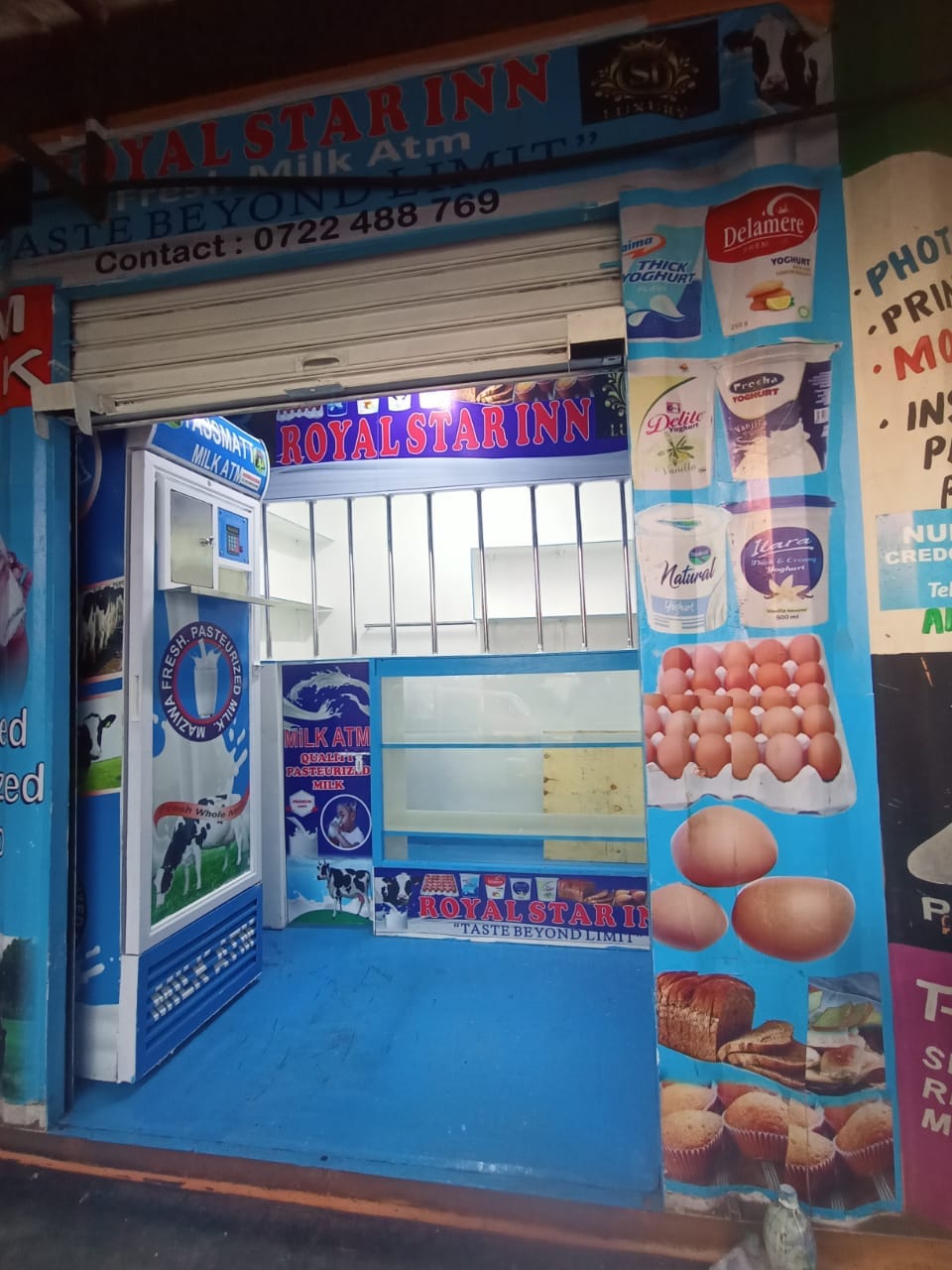
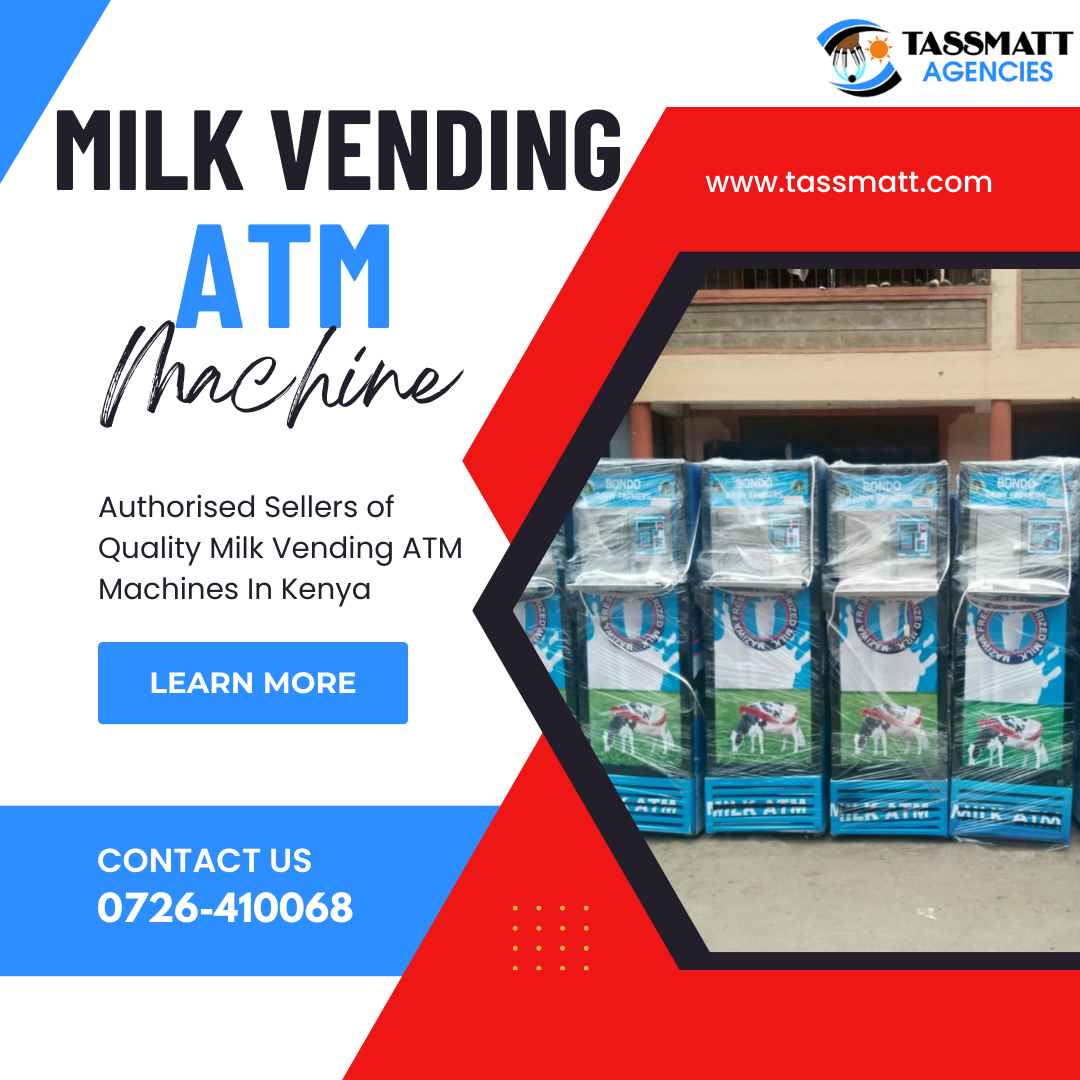

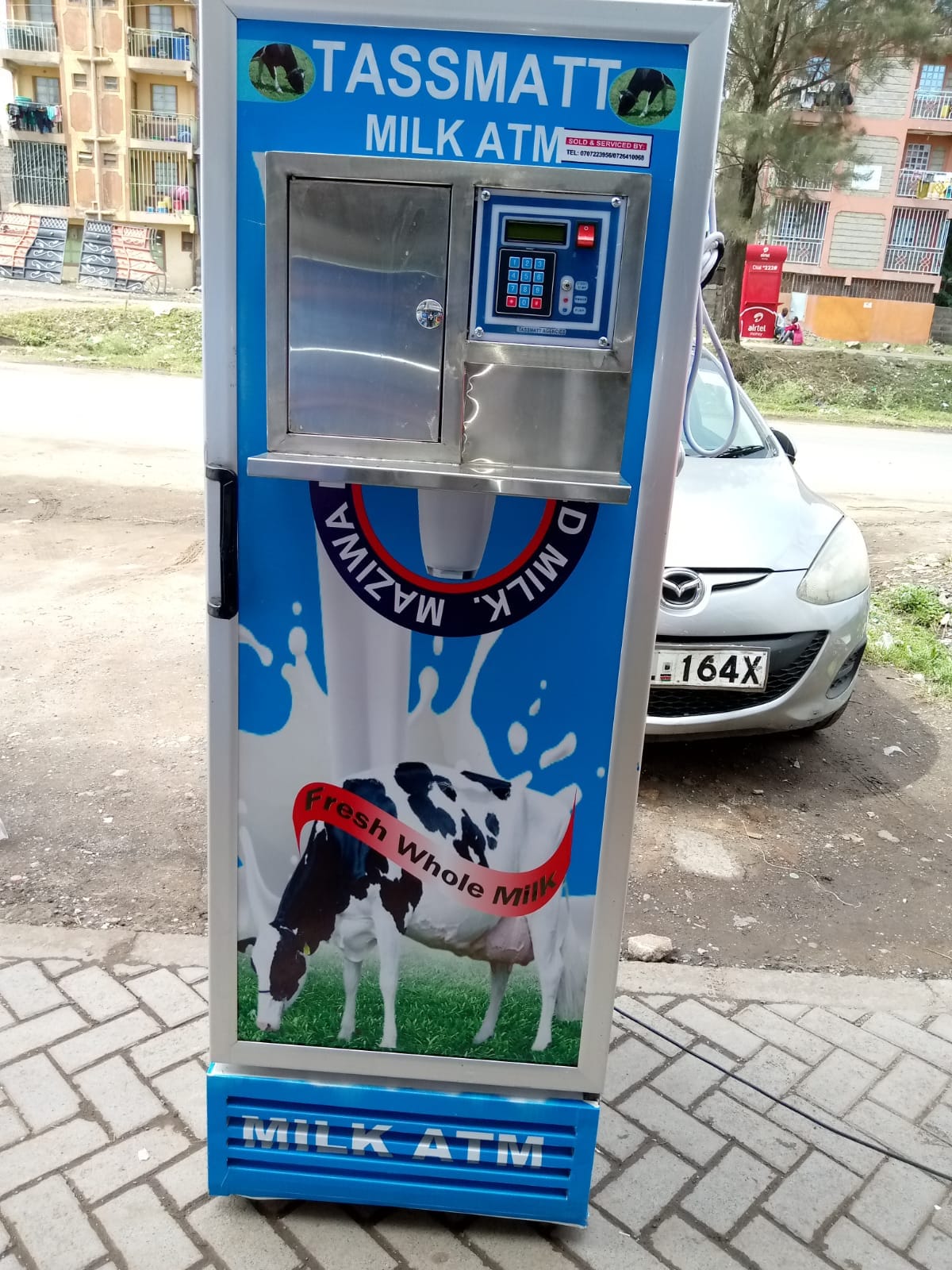
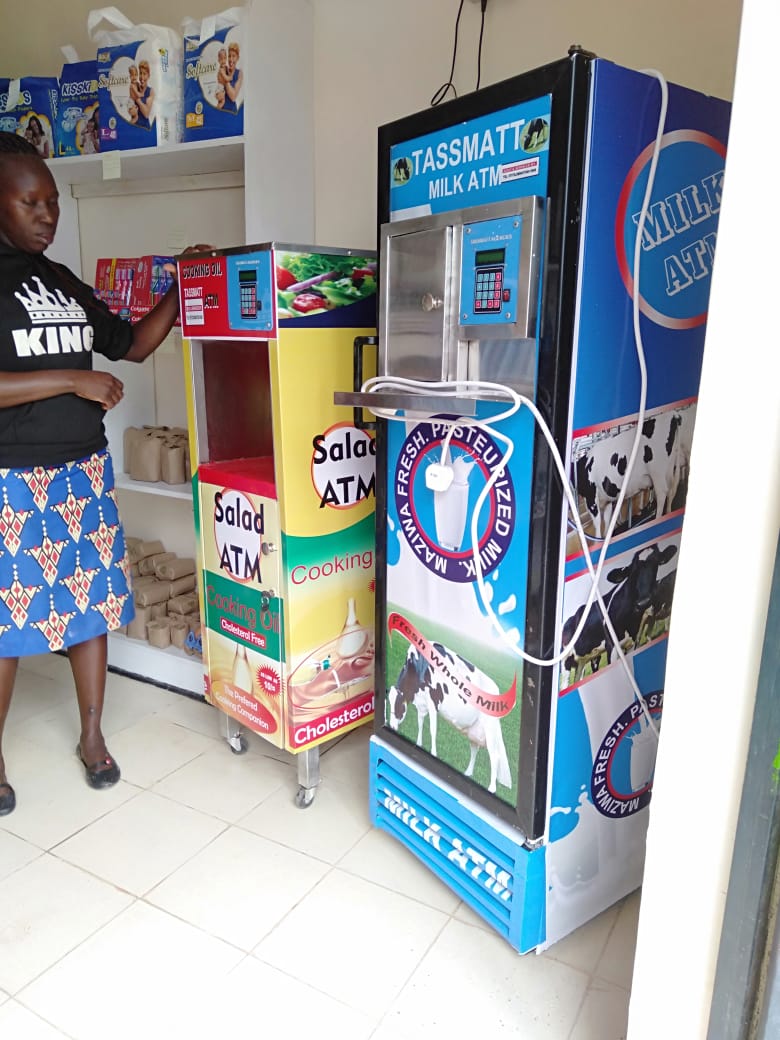
 to discuss your needs and initiate the ordering process.
to discuss your needs and initiate the ordering process.